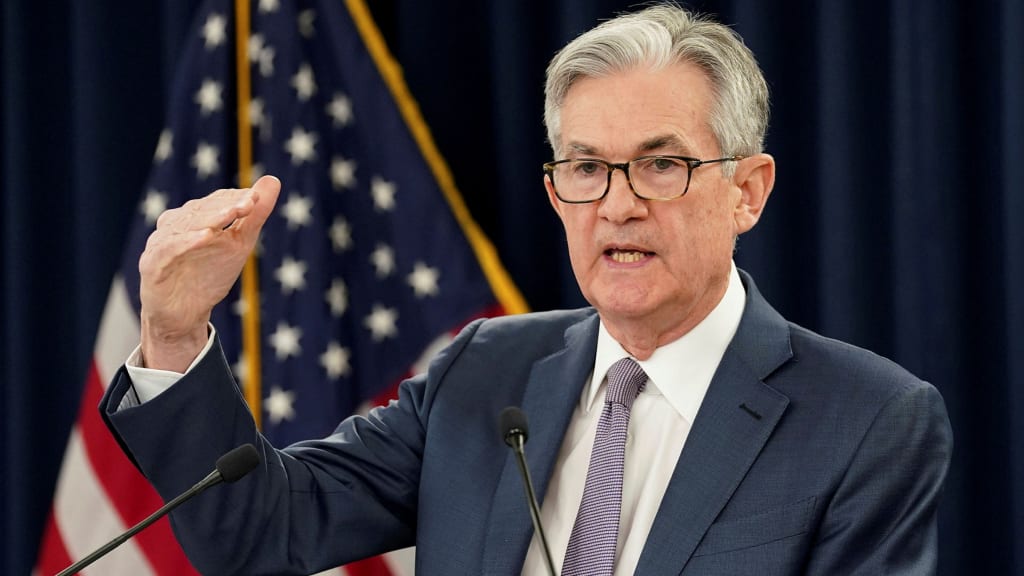
The Federal Reserve System, commonly known as the Fed, is the central banking system of the United States. It was established in 1913 with the passage of the Federal Reserve Act and serves as the nation's monetary authority. The Fed is tasked with several mandates, including maintaining stable prices, full employment, and promoting economic growth.
One of the main tools the Fed uses to fulfill these mandates is the Federal Open Market Committee (FOMC) meeting. The FOMC is composed of the seven members of the Federal Reserve Board and five of the twelve Federal Reserve Bank presidents. The committee meets eight times a year to assess the state of the economy and make monetary policy decisions.
During the FOMC meeting, the committee reviews economic and financial data, including inflation, employment, and GDP, to determine the current state of the economy. They also discuss any potential risks to the economy, such as geopolitical events or natural disasters. Based on their analysis, the FOMC may choose to adjust the federal funds rate, which is the interest rate at which banks lend money to each other overnight.
The federal funds rate is a crucial tool used by the Fed to influence economic activity. If the Fed believes the economy is growing too quickly and inflation is rising, they may raise the federal funds rate to slow down economic growth and keep prices stable. Conversely, if the Fed believes the economy is slowing down, they may lower the federal funds rate to encourage borrowing and spending.
In addition to adjusting the federal funds rate, the Fed may also use other tools to influence the economy, such as open market operations, which involve buying or selling government securities to increase or decrease the money supply.
In conclusion, the FOMC meeting is a crucial component of the Fed's monetary policy-making process. Through regular assessments of economic data and the use of various tools, the Fed aims to maintain a stable economy and promote economic growth. The decisions made during the FOMC meeting have far-reaching effects on the economy and are closely watched by financial markets, policymakers, and the general public.
he Federal Reserve's FOMC meetings are important for several reasons:
Monetary policy: The FOMC meetings are a key tool used by the Fed to implement monetary policy, which influences economic activity and stability. The decisions made during the meetings, such as adjusting the federal funds rate, can have a significant impact on the economy.
Economic forecasting: The Fed provides economic forecasts during FOMC meetings to give a clear picture of their outlook for the economy and the future path of interest rates. These forecasts serve as a valuable resource for businesses, investors, and consumers to make informed decisions.
Market reaction: The outcomes of FOMC meetings are closely watched by financial markets, and their reactions to the decisions can have a significant impact on stock prices, bond yields, and exchange rates.
Transparency: The Fed aims to be transparent in its decision-making process and provides detailed minutes of the meetings to the public. This allows for a better understanding of the Fed's views on the economy and its monetary policy goals.
Economic stability: By implementing monetary policy through FOMC meetings, the Fed helps to maintain stability in the economy and prevent inflation, unemployment, and other economic problems.
In conclusion, FOMC meetings play a vital role in shaping the economic landscape of the country, and the decisions made during these meetings have far-reaching effects on the economy and financial markets.
The Federal Reserve System's FOMC meetings play several key roles in the US economy:
Implementing monetary policy: The FOMC meetings provide a platform for the Fed to make decisions on monetary policy and to adjust the federal funds rate to influence economic activity.
Maintaining economic stability: Through its monetary policy decisions, the Fed aims to maintain stable prices, full employment, and economic growth, which helps to promote overall economic stability.
Communicating with the public: The Fed uses the FOMC meetings to provide economic forecasts and to explain its views on the economy, helping to increase transparency and improve understanding of its actions.
Responding to economic developments: The FOMC meetings provide an opportunity for the Fed to regularly assess economic and financial developments, allowing it to respond quickly to changes in the economy and potential risks.
Influencing financial markets: The outcomes of FOMC meetings, particularly decisions on interest rates, can have a significant impact on financial markets, including stock prices, bond yields, and exchange rates.
In conclusion, the FOMC meetings serve as a key tool for the Fed in executing its monetary policy goals, promoting economic stability, and communicating with the public. The decisions made during these meetings can have far-reaching effects on the economy and financial markets.





Comments
There are no comments for this story
Be the first to respond and start the conversation.